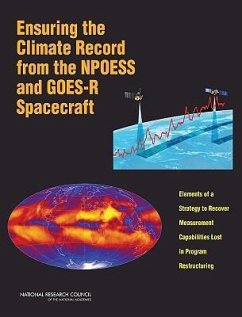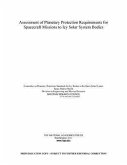In 2000, the nation's next-generation National Polar-orbiting Operational Environmental Satellite System (NPOESS) program anticipated purchasing six satellites for $6.5 billion, with a first launch in 2008. By November 2005, however, it became apparent that NPOESS would overrun its cost estimates by at least 25 percent. In June 2006, the planned acquisition of six spacecraft was reduced to four, the launch of the first spacecraft was delayed until 2013, and several sensors were canceled or descoped in capability. Based on information gathered at a June 2007 workshop, "Options to Ensure the Climate Record from the NPOESS and GOES-R Spacecraft," this book prioritizes capabilities, especially those related to climate research, that were lost or placed at risk following the 2006 changes. This book presents and recommends a prioritized, short-term strategy for recovery of crucial climate capabilities lost in the NPOESS and GOES-R program descopes. However, mitigation of these recent losses is only the first step in establishing a viable long-term climate strategy-one that builds on the lessons learned from the well-intentioned but poorly executed merger of the nation's weather and climate observation systems.
Bitte wählen Sie Ihr Anliegen aus.
Rechnungen
Retourenschein anfordern
Bestellstatus
Storno








